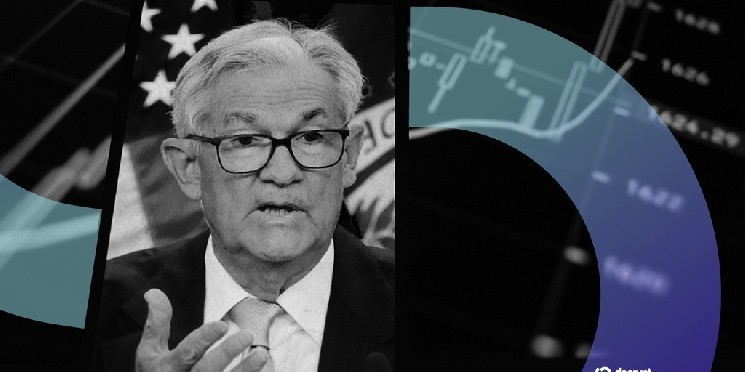A public conflict between President Donald Trump and Federal Reserve Chair Jerome Powell is brewing, as buyers weigh whether or not political stress might hasten charge cuts that sometimes enhance threat property like Bitcoin.
The rift emerges as Republican frustration grows over the Fed’s “higher-for-longer” stance on rates of interest, an strategy many within the GOP blame for dampening development in fairness and crypto markets.
Trump reportedly had a resignation letter for Powell drafted and positioned on his desk final week. Trump reportedly held again regardless of receiving constructive responses from polling Republican lawmakers.
“The ‘Shadow Fed’ is designed to make Powell a lame duck and irrelevant,” Jim Bianco, president of macro funding agency Bianco Analysis, tweeted Monday on X. “So, take note of the individual coming subsequent; they matter extra.”
Bianco suggests Trump could identify a successor to weaken Powell earlier than his time period expires, making a “shadow” central financial institution chief.
“Trump will demand charge cuts from the subsequent Chairman, and the long-end will ‘reject it’ by hovering in yield,” Bianco mentioned, predicting markets anticipate swift easing underneath Trump’s choose.
Merchants are actually pricing in simply two charge cuts this yr, in keeping with CME’s FedWatch software.
“Any speak of firing Chair Powell unsettles market confidence, particularly in crypto, the place belief is vital,” Dominick John, an analyst at Kronos Analysis, informed Decrypt. “A ‘Shadow Fed’ clouds charge reduce alerts, boosting volatility and complicating value discovery.”
Whereas Trump hasn’t moved to oust Powell, the rhetoric has sparked hypothesis {that a} future Fed choose would possibly favor charge cuts and carry threat property, not less than within the quick time period. However what about additional out?
These management quarrels “usually set off short-term crypto value swings attributable to uncertainty,” John mentioned. “If management centralizes with little oversight, crypto might more and more be seen as a secure haven,” John added.
Hostile circumstances
The Federal Reserve Act protects Powell from elimination besides “for trigger” misconduct or malfeasance, not coverage disagreements.
Authorized precedent from Humphrey’s Executor v. United States (1935) established this independence, affirming that the president can not dismiss officers from unbiased companies, such because the Federal Reserve, over coverage disagreements.
The ruling drew a line between govt authority and the autonomy of regulatory our bodies, that means Trump can not legally hearth Powell merely for sustaining larger rates of interest.
Nonetheless, there are different methods to use stress with out formal elimination.
“On one hand, he can select to proceed criticizing Powell in public, a frequent and poisonous strategy he usually makes use of,” Andrew Rossow, digital media legal professional and CEO of AR Media, informed Decrypt.
Trump might have Congress “maintain ‘hostile’ or adversarial hearings concerning the Federal Reserve,” whereas “weaponizing or abusing processes calling for price range evaluations, purple tape, and different aggressive circumstances towards the Fed in efforts to make their life harder,” Rossow mentioned.
The Fed might additionally file lawsuits that problem some Fed choices, “arguably losing sources of the courtroom,” he added.
On Monday, Rep. Anna Paulina Luna (R-FL), a Trump ally, escalated issues by submitting a prison referral towards Powell, claiming he “knowingly misled” Congress concerning the prices of the Fed’s headquarters renovation.
The scenario opens a paradox, Rossow argues.
“Whereas firing Powell would possibly briefly enhance crypto costs attributable to greenback weak spot and charge reduce expectations, it might essentially undermine the steady monetary system that crypto finally is dependent upon,” he mentioned.
For the quick time period, “crypto would possibly briefly profit as a ‘chaos hedge’ towards greenback weak spot and Fed politicization,” however for the long term, “sustaining a destabilized U.S. monetary system might damage a major, if not the bulk, of threat property—crypto included,” Rossow mentioned.


